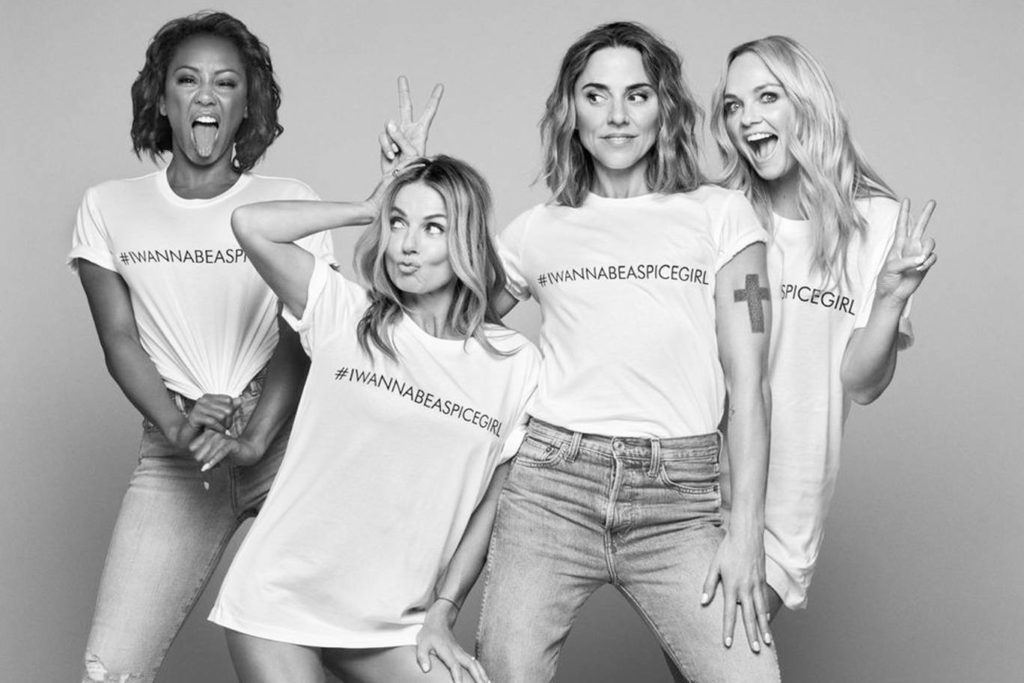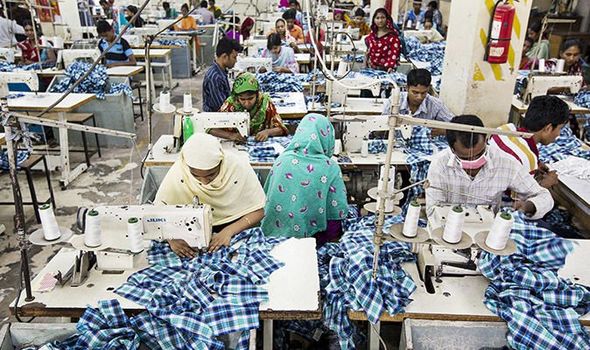Disclosure; this article will NOT ‘spice up your life’. Or make you ‘wannabe’ a Spice Girl.

It’s always exciting to see your pop idols whom you have always looked up to, re-unite for social good and the betterment of our world. And who better to represent Comic Relief’s ‘Gender Justice Campaign’ than the girl group that started cheering on women and evoking ‘girl power’ all over the world 20 years ago.
But a little over a week ago, it was revealed that this #IWANNABEASPICEGIRL t-shirt was not as ‘empowering’ as we may have thought.
But why you ask? What’s wrong with this t-shirt?

From the beginning…
The Spice Girls together with Comic Relief designed a t-shirt which would be made and sold to raise money for the gender justice campaign, which aims to ‘champion equality for women’. The #IWANNABEASPICEGIRL t-shirt would be sold for £19.60 with £11.60 going to Comic Relief for the gender justice campaign.
But, after the Guardian newspaper conducted an investigation into the origin and supply chain of the t-shirt, the findings were anything but ‘championing equality for women’.
According to the Guardian, the investigation revealed that whilst working up to 16 hours a day, the female machinists putting together the t-shirts were paid significantly less than the countries’ standard living wage. The investigation also revealed evidence of shameful working conditions. Employees were required to sit for long periods of time without a break, to hit impossible targets, and were often verbally abused or harassed by management for not meeting targets. It should be noted here that according to Fashion Revolution’s Fashion Transparency Index 2018, 80% of the 75 million people who work in the fashion and textiles industry, are women. Therefore, we can safely assume that most of the people that made this t-shirt were women.

It’s hardly ‘girl power’, right?
Comic Relief released a statement in response to the Guardian’s article (read the full statement here) announcing that they and the pop group had no idea of the cheap labour or mistreatment of garment makers in the factory and were launching an independent investigation into the factory that was used to make the t-shirts.
However, the article by the Guardian again highlights the ongoing battle within the fashion and garment industry in particular the complex and layered supply chain and the continued exploitation of some of the most vulnerable people in the world.
The investigation also draws attention to charity merchandise, whereby charities use merchandise (usually cheap) to raise money for social campaigns.
The empowering messages on popular charity merchandise including garments are a direct contradiction to the very supply chain that produced the merchandise – worst still, unbeknown to the consumer and public.
In 2013, the world was shocked by the devastating collapse of the Rana Plaza in Bangladesh that killed 1,134 people. The images of young men and women being pulled from the collapsed factory angered consumers and created movements by many organisations including Fashion Revolution’s #whomademyclothes campaign.
Fashion retailers and leading brands were found to be negligent and unaware of the conditions that garment workers were subjected to. Details emerged of atrocious working conditions, unsafe factories, long working hours, underpaid employees and child labour, all of which got international attention. For a brief time, it seemed the industry was going to change, and that they had learnt from this shocking incident.
Yet six years on, and, well here we are…
That is what is wrong with this t-shirt.